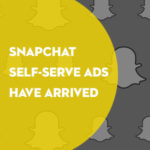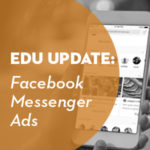Traditional best practice in higher ed with regards to Facebook pages is one page to run them all – you have one main “official” page representing all of the stakeholders at your institution – prospective students, parents, current students, alumni, etc.
Facebook has just thrown this practice on its head.
There were lots of great talking points in this week’s special edition of Higher Ed Live about what the changes on Facebook mean for marketers, but the critical one for me was this: There is no longer any guarantee that your page posts will even show up in your user’s “Recent Stories” stream.
Let me say that again: There is no guarantee that your posts will even show up in your users’ stream under “Recent Stories”, let alone make it to the sweet spot of “Top Stories”.
Whether or not you show up will be a factor of your EdgeRank score, which is Facebook’s algorithm for how objects appear in the news feed. What is your EdgeRank based off of? Engagement. If you are consistently putting out stories that people won’t like, comment on and share, you are putting your page at risk of being hidden altogether. The days of putting out boring press releases on your Facebook page focused on all audiences are over – schools must implement an “engagement first” strategy.
(And if you need to learn more, or check, your EdgeRank score, www.edgerankchecker.com is a great resource).
Now, what does this mean? I would argue that the traditional tactic of one page to rule them all needs to get tossed out the window entirely. Why? Because when you have a broader audience on your page, it is near impossible to create content that will consistently engage those audiences. Different niches care about different things – alumni want nostalgic things, current students want information on events on campus, prospective students want updates from the admissions office. If you want to get into the real nitty gritty, you’re talking about program-specific pages for academic majors or departments to really focus in on topics people are interested in.
I’m going to make the arguement that the changes being made to Facebook means a major change in the way that colleges approach Pages – it’s time to initiate focused, topical pages for specific audiences. That way, you’ll get higher engagement levels and make sure you are showing up in not only “Recent Stories”, but making it to “Top Stories” as well.
What do you think?
This post was written by Karlyn Borysenko








